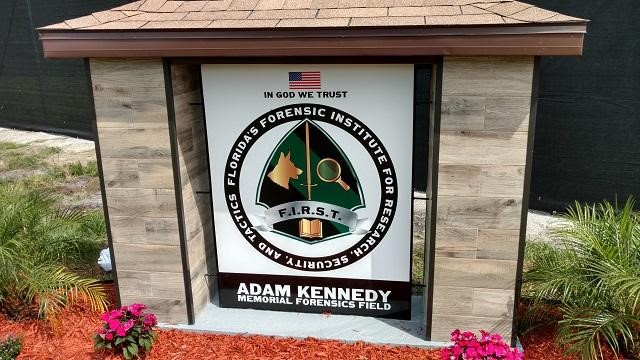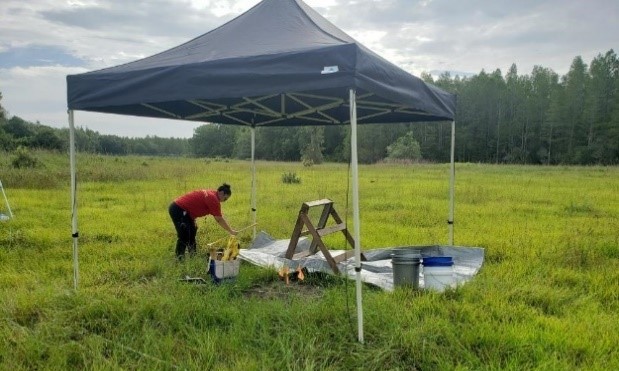


The Thomas Varnadoe Forensics Center for Research and Education, named after one of the victims of the Dozier School for Boys, will be an all-inclusive forensic research center including lab space, autopsy suite, cooler, donated skeletal collection with trauma research lab, and classrooms. The building will also support the two forensic research fields on-site. By creating an environment where law enforcement can work alongside researchers to better understand crime scenes and integrate with the latest investigative techniques, investigators will become highly skilled at collecting, processing, and interpreting evidence in their cases.

Location is one of the things that makes F1RST’s Thomas Varnadoe Center and forensics fields unique. Florida has soils, vegetation, and a climate that are unlike anywhere else around the country doing similar research (i.e. Tennessee, Texas, North Carolina, Illinois, and Colorado), and therefore we represent the ability to fill a knowledge gap in forensic anthropology. Our facilities allow researchers, investigators, crime scene technicians, and other practitioners to develop new methods and strategies for critical steps in the investigative process such as managing large mass disasters involving a criminal act, identifying unknown homicide victims and missing persons, locating clandestine burials, and identifying trace evidence in outdoor crime scenes. Most importantly, these methods will be relevant to our local climate and environment.

Additionally, F1RST promotes a collaborative and multi-disciplinary approach to forensic and scientific research conducted at the facility, combining anthropology, medicine, geology, chemistry, biochemistry, engineering, and entomology. The facility is used by students in all of these fields to further the standardization of all areas of forensic science and act as the driving force behind the development of new methods and application of newer technologies. It is used to host workshops and train professionals in the law enforcement and medico-legal community on industry best practices. Hosting all of the forensic disciplines with subject matter experts and specialized resources will allow law enforcement to stay in sync with the rapidly advancing field of forensic science and quickly apply the knowledge, skills, and capabilities gained to the field.
